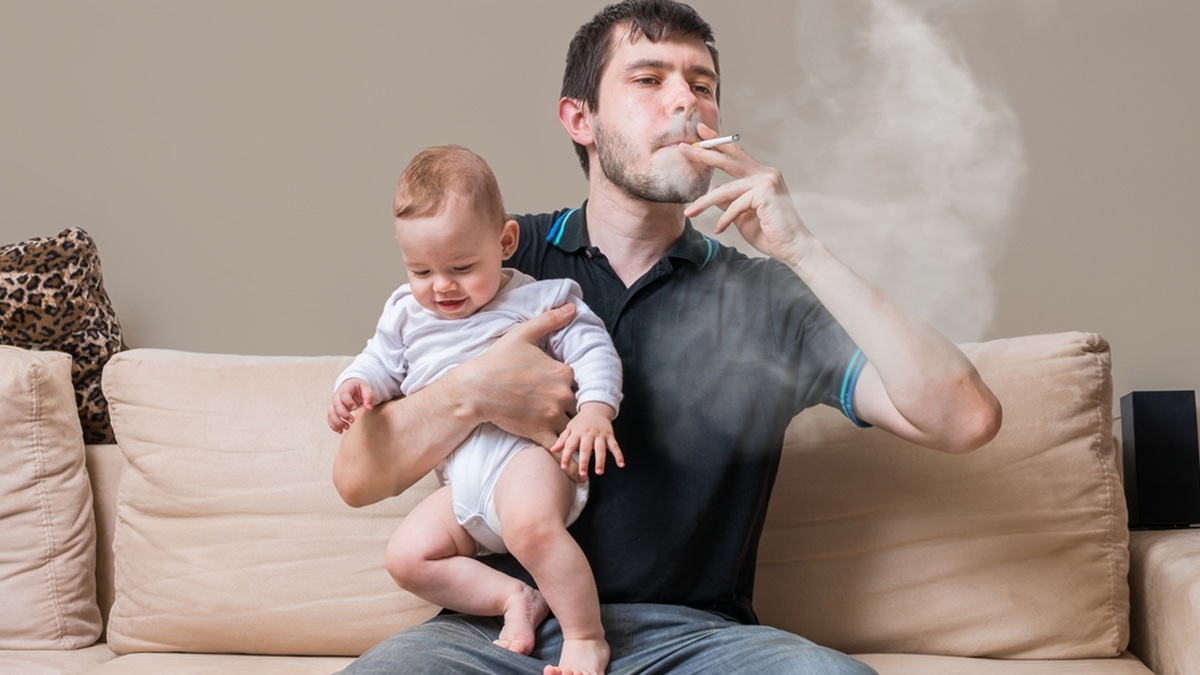Do you know about Sudden Infant Death Syndrome (SIDS)? This devastating condition involves the sudden and unexplained death of a seemingly healthy baby during sleep. While the exact cause of SIDS remains a mystery, recent research has identified several risk factors, including one that may surprise you: smoking. Did you know that both maternal smoking during pregnancy and exposure to secondhand smoke after birth are linked to a higher risk of SIDS? We spoke to our expert Dr Nithiyaa Jeyakumar, MBBS, DGO, DNB OG, MNAMS, Obstetrics and Gynaecology, Apollo Cradle and Children’s Hospital, Chennai, who explained how smoking affects infant health and what steps parents can take to reduce the risk of SIDS.
According to the data published in the National Center for Biotechnology Information, SIDS usually occurs during sleep, with death believed to take place either while the infant is asleep or during the transition from sleep to waking. Although SIDS is defined for infants up to 1 year old, around 95% of SIDS cases happen within the first six months of life, with the highest incidence occurring in babies aged 2-4 months.
Smoking During Pregnancy Increases Risk Of SIDS

“Maternal smoking during pregnancy has long been a recognised risk factor for SIDS. Smoking during pregnancy exposes the foetus to harmful substances, such as nicotine and carbon monoxide. These chemicals disrupt the developing brain areas which handle breathing and arousal from sleep,” said Dr Jeyakumar.
The effects of prenatal exposure to these toxins lead to an increased risk of respiratory problems and reduced ability to respond to low oxygen levels, making infants more vulnerable to SIDS.
According to a recent study supported by the NIH, infants born to mothers who smoked and drank alcohol after the first trimester of pregnancy face a 12-fold higher risk of Sudden Infant Death Syndrome (SIDS) compared to those who were not exposed or were only exposed during the first trimester. This research underscores the significant impact of maternal behaviours on infant health.
Also Read: Trimester By Trimester: Expert Explains How To Plan Balanced Meals For A Healthy Pregnancy
Secondhand Smoke and SIDS

The dangers of smoking do not end after birth. Infants who are exposed to secondhand smoke, commonly known as passive smoke, are more prone to SIDS. “Secondhand smoke consists of more than 7,000 chemicals that harm the respiratory system of the baby and will make it more challenging for them to breathe well. Babies who are normally exposed to secondhand smoke are less able to wake up from sleep, which has been considered an important way to defend the baby from SIDS,” explained Dr Jeyakumar.
For instance, a mother can ensure that her house and car remain smoke-free to reduce the baby’s chances of secondhand smoke. Even though the mother smokes outdoors, the chemicals released by this behaviour can stay in her clothing and hair, posing a risk for the baby when she touches or feeds them.
Also Read: Vitamins To Avoid During Pregnancy: Expert Advice On Safe Supplementation For Expecting Mothers
What Can Parents Do?
There are several proactive steps parents can take to significantly reduce the risk of SIDS. Here are some expert recommendations:

- Give up smoking before or during pregnancy, and ensure the infant avoids exposure to secondhand smoke.
- Create a smoke-free sleep environment for the baby.
- Always place the baby on their back to sleep, and avoid using soft bedding or toys in the crib.
- Breastfeeding, when available, has been shown to lower the risk of SIDS.
“This link between smoking and SIDS can perhaps guide parents into making better choices regarding smoking, thus creating a healthier environment for the baby and reducing the risk of this devastating condition,” concluded Dr Jeyakumar.
[Disclaimer: This article contains information provided by an expert and is for informational purposes only. Hence, we advise you to consult your own professional if you are dealing with any health issues to avoid complications.]

